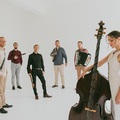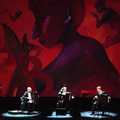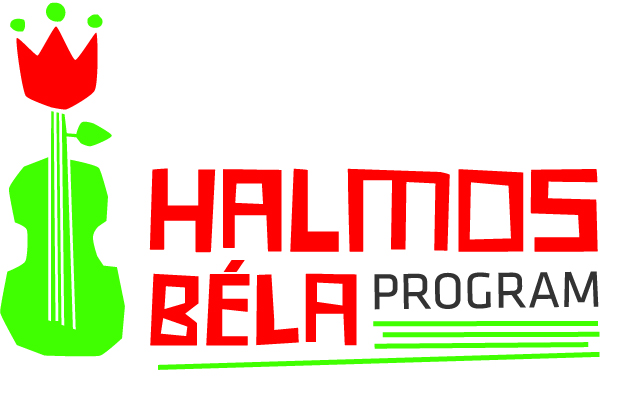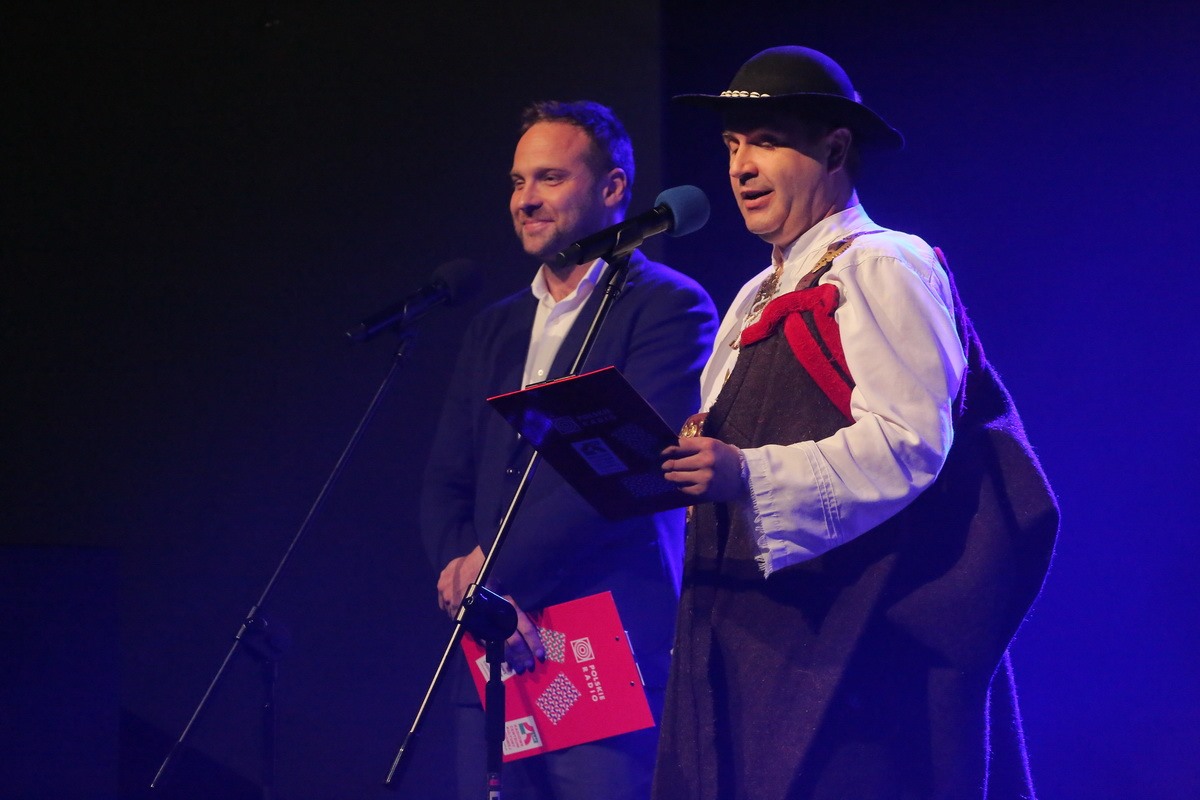
The name of the Polish festival ‘Nowa Tradycja’ probably sounds like an oxymoron, but it is more like an open question, that by awaiting responses year by year, thus outlining a new genre of music: ‘new traditional’. The festival launched by the Polish Radio now has gained more than twenty years of experience in listening to these answers.
We asked Kuba Borysiak, organizer and jury member of the New Tradition Festival.
The first Nowa Tradycja Festiwal was held in 1998. The idea of ‘new’ traditional music was born quite soon after the Poles discovered their own ‘old’ traditional music. How did it happen? How was the concept of the festival born?
The festival was initiated by Maria Baliszewska, at this time head of Folk Music Department in the Polish Radio. The main aim was to create a new stage for Polish musicians, generate interest in Polish roots among young artists from Poland and develop a new genre of folk music, which we consider the modern interpretation of traditional music from Poland. Earlier (until 1989) the term ‘folk music’ was actually taken by Moiseev ballet inspired folkloristic state ensembles like Mazowsze or Śląsk. Baliszewska’s idea was also to encourage young artists and make them discover the real beauty of tradition ‘in crudo’ (i.e. its original sound, without stylization and editing) together with creating modern folk music.
Tell us about the festival events in general!
From the very first festival it has been a 4-5 days event, usually organized in the middle of May. It takes place in the Witold Lutosławski Concert Studio (Polish Radio – Warsaw), a great venue for an audience of 400, and almost all the concerts are broadcasted live on Programme 2 or Programme 1 of the Polish Radio. Over the last ten years all the shows have also been prepared for professional video streaming – all the recordings are easy to find on YouTube and on the Polish Radio website. The festival is divided into various parts. The major and most significant part is the competition for young artists. In the pre-selection phase journalists from the Folk Music Department choose 10-12 final bands or artists, from a great number and variety of recordings, who are given the chance to perform live on stage. Through this selection the jury members - Polish artists, journalists, producers – choose the winners, and award them with Grand Prix, Second Prix, Third Prix, Audience Award and Special Prix – Czesław Niemen Award. Aside from the competition, concerts and also special-award ceremonies are held, such as: ‘Music of Sources’ concert of traditional Polish musicians – usually focusing on one region or a special artist; Best Folk Album Award and concert given by the winner of the best folk album of the year; Best Traditional Music Album Award – award ceremony; concerts of international guests.
The festival now has a 20-year history. What has changed since the beginning? How do you think it is gaining momentum after these long years?
The festival idea remains the same, but of course after twenty years there is a new generation who takes part in the competition. Through all this time we were witnessing different waves or fashions like lots of ‘klezmer musicians’, more conservative approaches (mostly focusing on the mazurka tradition) or music connected to the jazz scene or classical music. For the last years sadly quite many artists are not deeply interested in the real context of traditional music, they, for example, use samples of old recordings and mix them with modern electronic effects.
Most memorable performances in the New Tradition Festival’s history – according to Kuba Borysiak: Warsaw Village Band (III prix 1998), Cracow Klezmer Band [Bester Quartet] (Grand PRIX 2000), Lautari Folk Band (II Prix 2001), Kwadrofonik (Grand Prix 2006), Adam Strug (I Prix 2007), Volosi (Grand Prix 2010), Sutari (II Prix 2012), Karolina Cicha (Grand Prix 2013), Kapela Maliszów (II Prix 2014), Polmuz (I Prix 2018)
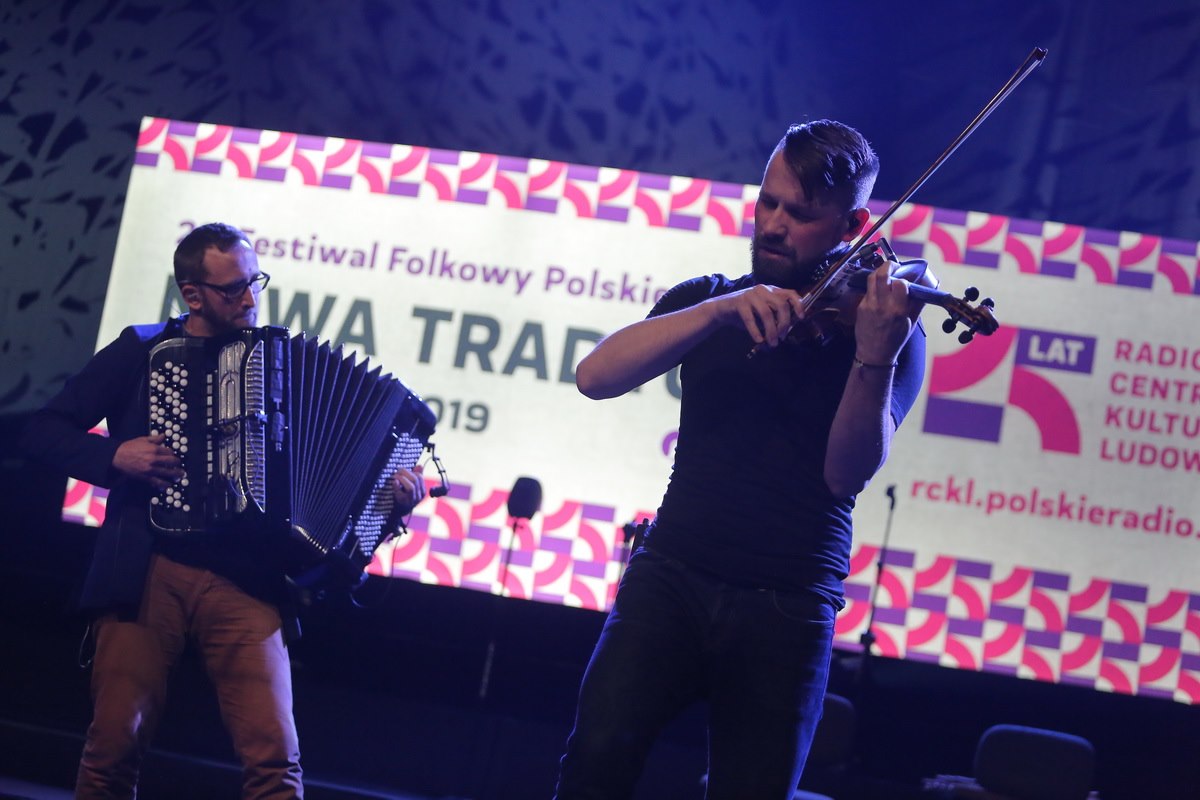
What do you think is the importance of being awarded in the competition for a band or performer professionally? What further advantages could the participants enjoy after the Festival? A band performs a 20-25 minutes material. Is that enough to open any doors? What kind of opportunities do they have?
It’s still a prestige to qualify for the finals and perform in Lutoslawski Studio. The winners usually use their award fame, they are invited to many festivals in Poland and abroad. As the Folk Music Department we help them produce and record professional albums, invite them to the Polish Radio festivals and concerts, promote them within the European Broadcasting Union, send them to the EBU Folk Music Festival etc. Almost all folk music bands who took part in Nowa Tradycja started their career after winning the competition. After years we noticed that not only the bands or artists who won the main awards received success. Some musicians like Adam Strug are still quite unknown to the international public, on the other hand others like Sutari or Kapela Maliszów seem to be more recognised in the world music scene abroad than in Poland.
Polish audience seems receptive to new sounds. I mean, for example, there is a deep culture of jazz in Poland with one of the oldest and largest jazz scenes in Europe. How open Poles are to their (old and) ‘new traditional’ musical culture?
I think it’s quite complex. On the one hand we have stable and increasing interest in ‘new traditional’ music in many places. There are quite a few great world music and folk festivals in Poland. During summer time in almost every town or village we can listen to musicians who are influenced by traditional music. For a few years now even huge festivals like Open’er Festival or Off Festival – important for the alternative scene – invite folk and traditional Polish artists. On the other hand, there is not much heard about this genre in public and private media (especially TV). The only notable exception is the Polish Radio. World music, folk music and traditional music is still a niche – appreciated by many but unfortunately not as much supported as jazz or classical music.
What about the musical export? What do you think is the key for a Polish band to be able to appear on the international stage?
During the last ten years the export of Polish music orientated in ethnic changed a lot. Due to the Mickiewicz Institute’s mission to present Polish culture and heritage on the international scene, the Folk Music Department of the Polish Radio together with Janusz Prusinowski’s idea of spreading mazurka rhythms and professor Maria Pomianowska sharing knowledge about Polish instruments we found ourselves for the first time in quite a good and stable position. A lot of bands tour internationally, take part in different showcase festivals. In my opinion ‘folk music’ is one of the best export ‘products’ we have right now.
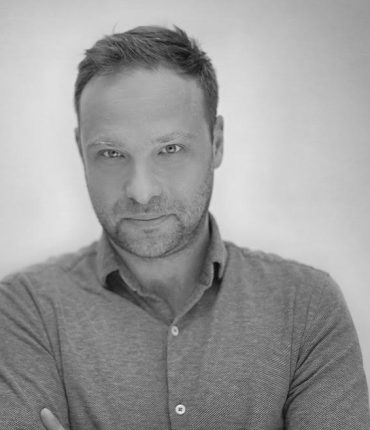
Kuba Borysiak – ethnomusicologist, journalist, broadcaster, record producer and musician.
Graduated from the Institute of Musicology at Warsaw University. Since 2008 a regular presenter and host of various shows on Polish Radio Programme 1 and 2. Organizer and jury member of the New Traditional Festival presented by the Polish Radio. Founder and art director of the Festival of Youth Without Fronteriers in Różanystok (2009-2015). Chairman of the Folk and Traditional Music Group of the European Broadcasting Union (2012-2017). Participated in various Hungarian festivals and conferences like Budapest Ritmo (2019), Waclaw Felczak Polish-Hungarian Days (2018) as a guest.
Zsófi Lázár
More Warsaw Return articles here
photos from: facebook
THE INTERVIEW WAS SUPPORTED BY THE WACŁAW FELCZAK FOUNDATION.
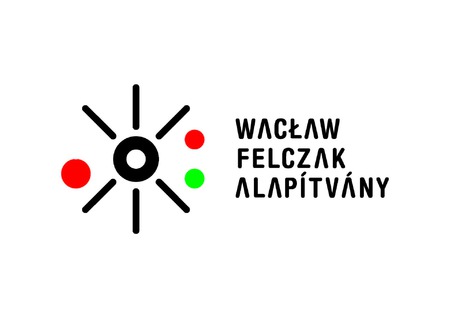

A bejegyzés trackback címe:
Kommentek:
A hozzászólások a vonatkozó jogszabályok értelmében felhasználói tartalomnak minősülnek, értük a szolgáltatás technikai üzemeltetője semmilyen felelősséget nem vállal, azokat nem ellenőrzi. Kifogás esetén forduljon a blog szerkesztőjéhez. Részletek a Felhasználási feltételekben és az adatvédelmi tájékoztatóban.
